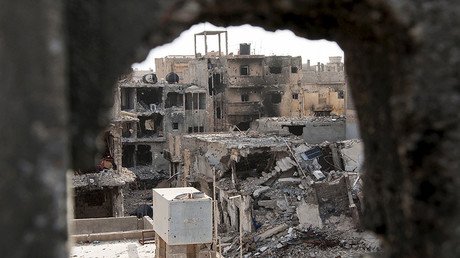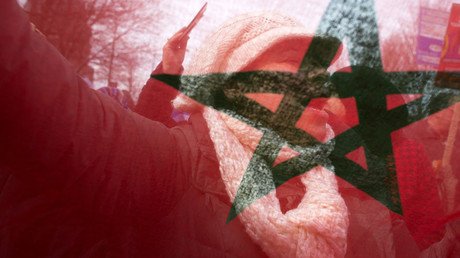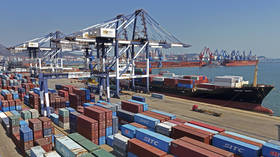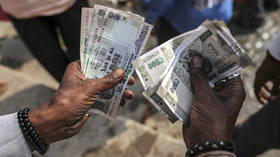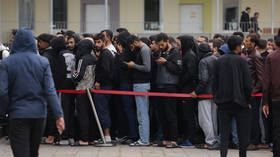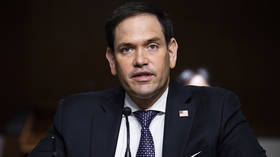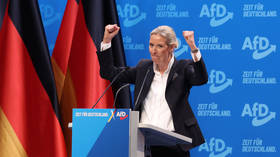The failure of political Islam
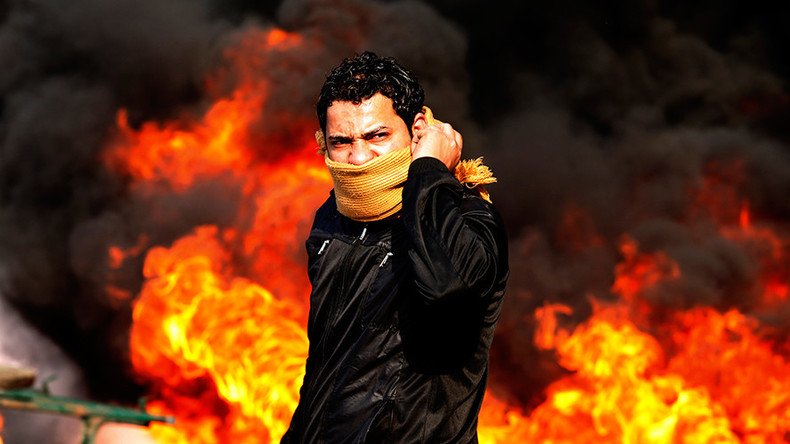
Perhaps all 'start of centuries' are characterized by upheaval and turmoil. Across the Arab world, the events of the early 20th century would go on to shape the region for decades, well into the following millennium.
The Arab revolts started in the Arabian Peninsula and aimed at ousting the Ottoman rulers from the region would have profound consequences.
Local tribes allied to the British forced the former ruling power out in a bid to finally liberate the Middle East and set it on a course of emancipation. Nostalgic of the Islamic conquests of the seventh century - when a group of men and women fueled by unquestionable faith established a successful and multi-ethnic new world that within 30 years would stretch from the Atlantic to the Persian Gulf - Arabs were looking to re-engage with their glorious past.
That alliance with the British Empire, however, set the region in deepened self-subjugation from which it is struggling to extricate itself to this day.
At the time of decolonization and the rise of pan-Arab nationalism, a parallel current was underway.
Political Islam was gaining strength and presenting itself as a suitable alternative to Western models that appeared unlikely to benefit the Islamic world and its specificities.
The message was simple: going back to the basics that made the Muslim community, or Ummah, great again.
It offered an alternative to the Western models that seemed to be failing at a time when two major world wars left over 100 million people dead.
Against colonial rule, it was however the nationalist movements that were proving efficient in fighting the French and British imperialists.
In Egypt, the Arab world's most populous country, these two currents would come to a head under Gamal Abdel Nasser's leadership when he came to power in a military coup in 1952.
Although initial allies, the Muslim Brotherhood's Sayyid Qutb and Gamal Abdel Nasser would later fall out over which direction to steer Egypt.
Qotb had spent several years in America studying English and concluded the Americans were “primitive people who were deeply racist and sexually depraved lacking artistic finesse.”
This entrenched his views on the importance of an Islamic form of leadership in his native Egypt and he initially welcomed the Free Officers coup lead by Nasser, which ousted the pro-British monarchy.
Nasser however, who'd been influenced by such people as Mustapha Kemal of Turkey, considered a secular Egypt to be in the nation's best long-term interest.
It has to be stated that while the clash has become far more entrenched between these two currents in the late 20th and early 21st century, in the 1950's and 60's the lines were often blurred and each side made startling alliances.
The Muslim Brotherhood's conservative outlook on society meant that it enjoyed the support of rural Egypt but also urban middle classes from both Muslim and Coptic Christian communities.
Affluent Coptic Christian families in Egypt were naturally drawn to the more secular policies of Nasser. However, his agrarian reforms which forced many of them out their lands meant that they saw in the Brotherhood a possible alliance.
From more modest Christian backgrounds it was the conservative message of the MB that was appealing as many, like their Muslim counterparts, saw the influence of Western culture, detrimental to their traditions and survival.
The Muslim Brotherhood also boasted a wide network of social organizations that were deeply imbedded in communities and offered help to its more vulnerable members making it a very popular grassroots movement.
The creation of the state of Israel in 1948 by Jewish settlers arriving essentially from Eastern Europe and supported by European governments would eventually tilt the balance in Nasser's short-term favor.
As a proud Arab nationalist and fervent critic of Israel, Nasser launched wars against the newly established colonial outpost in a bid to liberate Palestinian land.
This galvanized Arab public opinion at a time of anti-Colonial fervor that would firmly entrench Nasser's position in both Egypt and the Arab world.
His sudden death in 1970 would however start the slow and inevitable decline of pan-Arabism and pave the way for the gradual rise of political Islam.
By the time oil prices started trading at record lows in the 1980s, social tensions were untenable and previous socialist reforms initiated under the Nassers, Boumedienes or Gaddafi's of the Arab world were starting to show weaknesses in which political Islamists would capitalize upon.
While sectarian tensions between Sunni and Shia sects are central to the current crisis engulfing Syria and Iraq, the success of Iran's Islamic revolution in 1979 gave political Islam the boost it so desperately craved.
If Iran could have its Islamic revolution why can’t there be one in Egypt, Syria or Algeria? Everywhere the message of these political Islamists was becoming increasingly popular.
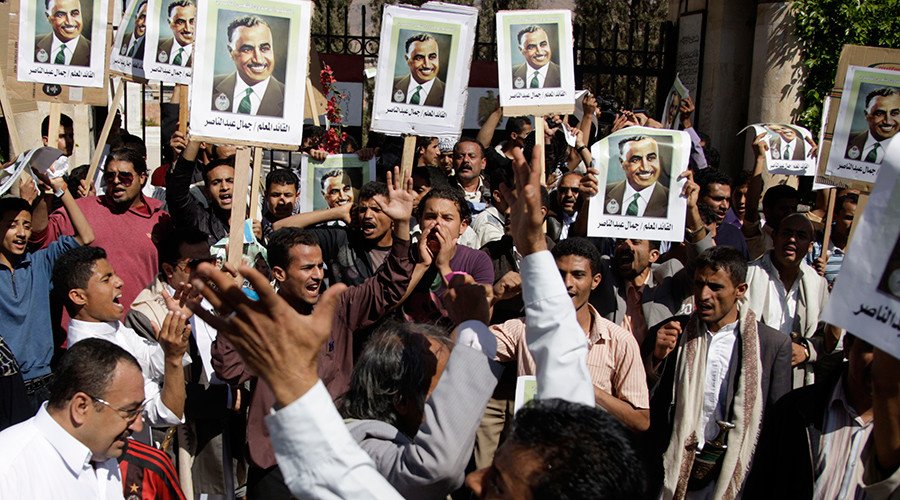
The message was once again simple: Western models of governance had failed. Why not revert back to what shaped the modern Arab world: Islam.
The discourses of many of the political figureheads was gaining traction across the Arab world, yet in their bid to now overthrow the secular governments they were so critical of, most if not all were seeking alliances with the Western capitals they claimed to despise.
Algeria's Abassi Madani, who would go on to start a civil war that would leave close to 200,000 people dead, had lived in Britain. His 'disciples' would later famously use Finsbury Park in London as the base from which to raise funds and organize attacks against the Algerian state.
Rached Ghannouchi of Tunisia chose a British exile after being forced out of the country in the late eighties.
Hakim Belhadj of Libya who'd traveled to Afghanistan to fight in the 80's had close ties to the UK before returning to Libya under a scheme initiated by Saif Al Islam Gaddafi which aimed at pacifying all those who called for the military overthrow of their government. He initially praised the scheme and started living in government funded comfort in the hope he would assist in the ongoing nation building of the North African oil rich giant.
In 2011, he obtained arms from the NATO coalition that aimed to remove Gaddafi and created a militia group that would contribute to the fall of the Libyan leader.
Where they were once firm critics of the West and Western foreign policy, almost all notable 'political Islamists' then allied with the West in a bid to overthrow, often in the most violent ways, their respective governments.
Irrespective of the human and material cost to their native countries these 'political Islamists' were and continue to court Western support for their political aims.
So where does Political Islam stand today?
In the Levant many political Islamists have again allied with Western sponsors to engage in the overthrow of Bashar Assad's leadership.
Critical of the Sykes-Picot agreement which carved the Arab world to suit London and Paris' interest, many 'Islamists' have never the less allied with those very same capitals hoping that this time the alliance would result in a positive outcome. How many cases of imperialist collaboration will be needed to finally realize that these 'marriages of convenience' are not in the region's best interest?
Political Islam has no doubt suffered a serious blow since the Arab Spring of 2011. While some movements have sought Western alliances to pursue military engagement against their respective governments, others have simply watered down their political message to almost comical proportions.
Morocco has had since 2011 an 'Islamist' Prime Minister: Abdelilah Benkirane.
Morocco is today the premier destination for child prostitution and female sexual exploitation for wealthy Western sex predators unable to make the time-consuming flight to Thailand.
Last month the country hosted a photo shoot of a special edition of glamour magazine Playboy featuring topless women on the backdrop of the Old Medina of Marrakesh where the call to prayer could be heard in the distance.
From radical warfare to Playboy photo shoots; it has become difficult to understand what political Islam currently stands for. What is clear, however, is that in the second part of the 20th century, strong alliances with Western capitals have become very open... just like the tops of the Playboy models on the rooftops of Marrakesh's Old Medina.
The statements, views and opinions expressed in this column are solely those of the author and do not necessarily represent those of RT.

